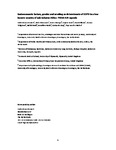Socio-economic factors, gender and smoking as determinants of COPD in a low-income country of sub-Saharan Africa: FRESH AIR Uganda
| dc.contributor.author | van Gemert, F | |
| dc.contributor.author | Chavannes, Niels Henrik | |
| dc.contributor.author | Kirenga, B | |
| dc.contributor.author | Jones, Rupert | |
| dc.contributor.author | Williams, S | |
| dc.contributor.author | Tsiligianni, I | |
| dc.contributor.author | Vonk, J | |
| dc.contributor.author | Kocks, Janwillem | |
| dc.contributor.author | de Jong, C | |
| dc.contributor.author | van der Molen, T | |
| dc.date.accessioned | 2018-03-22T11:13:41Z | |
| dc.date.issued | 2016-09-01 | |
| dc.identifier.issn | 2055-1010 | |
| dc.identifier.issn | 2055-1010 | |
| dc.identifier.other | 16050 | |
| dc.identifier.uri | http://hdl.handle.net/10026.1/11153 | |
| dc.description.abstract |
<jats:title>Abstract</jats:title><jats:p>In Uganda, biomass smoke seems to be the largest risk factor for the development of COPD, but socio-economic factors and gender may have a role. Therefore, more in-depth research is needed to understand the risk factors. The aim of this study was to investigate the impact of socio-economic factors and gender differences on the COPD prevalence in Uganda. The population comprised 588 randomly selected participants (>30 years) who previously completed the FRESH AIR Uganda study. In this <jats:italic>post hoc</jats:italic> analysis, the impact of several socio-economic characteristics, gender and smoking on the prevalence of COPD was assessed using a logistic regression model. The main risk factors associated with COPD were non-Bantu ethnicity (odds ratio (OR) 1.73, 95% confidence interval (CI) 1.06–2.82, <jats:italic>P</jats:italic>=0.030), biomass fuel use for heating (OR 1.76, 95% CI 1.03–3.00, <jats:italic>P</jats:italic>=0.038), former smoker (OR 1.87, 95% CI 0.97–3.60, <jats:italic>P</jats:italic>=0.063) and being unmarried (OR 0.087, 95% CI 0.93–2.95, <jats:italic>P</jats:italic>=0.087). A substantial difference in the prevalence of COPD was seen between the two ethnic groups: non-Bantu 20% and Bantu 12.9%. Additional analysis between these two groups showed significant differences in socio-economic circumstances: non-Bantu people smoked more (57.7% vs 10.7%), lived in tobacco-growing areas (72% vs 14.8%) and were less educated (28.5% vs 12.9% had no education). With regard to gender, men with COPD were unmarried (OR 3.09, 95% CI 1.25–7.61, <jats:italic>P</jats:italic>=0.015) and used more biomass fuel for heating (OR 2.15, 95% CI 1.02–4.54, <jats:italic>P</jats:italic>=0.045), and women with COPD were former smokers (OR 3.35, 95% CI 1.22–9.22, <jats:italic>P</jats:italic>=0.019). Only a few socio-economic factors (i.e., smoking, biomass fuel use for heating, marital status and non-Bantu ethnicity) have been found to be associated with COPD. This applied for gender differences as well (i.e., for men, marital status and biomass fuel for heating, and for women being a former smoker). More research is needed to clarify the complexity of the different risk factors.</jats:p> | |
| dc.format.extent | 16050- | |
| dc.format.medium | Electronic | |
| dc.language | en | |
| dc.language.iso | eng | |
| dc.publisher | Springer Science and Business Media LLC | |
| dc.subject | Adult | |
| dc.subject | Air Pollution, Indoor | |
| dc.subject | Biomass | |
| dc.subject | Cooking | |
| dc.subject | Developing Countries | |
| dc.subject | Female | |
| dc.subject | Forced Expiratory Volume | |
| dc.subject | Humans | |
| dc.subject | Logistic Models | |
| dc.subject | Male | |
| dc.subject | Middle Aged | |
| dc.subject | Odds Ratio | |
| dc.subject | Prevalence | |
| dc.subject | Pulmonary Disease, Chronic Obstructive | |
| dc.subject | Risk Factors | |
| dc.subject | Sex Factors | |
| dc.subject | Smoking | |
| dc.subject | Socioeconomic Factors | |
| dc.subject | Tobacco Smoking | |
| dc.subject | Uganda | |
| dc.title | Socio-economic factors, gender and smoking as determinants of COPD in a low-income country of sub-Saharan Africa: FRESH AIR Uganda | |
| dc.type | journal-article | |
| dc.type | Journal Article | |
| plymouth.author-url | https://www.webofscience.com/api/gateway?GWVersion=2&SrcApp=PARTNER_APP&SrcAuth=LinksAMR&KeyUT=WOS:000383406900002&DestLinkType=FullRecord&DestApp=ALL_WOS&UsrCustomerID=11bb513d99f797142bcfeffcc58ea008 | |
| plymouth.issue | 1 | |
| plymouth.volume | 26 | |
| plymouth.publication-status | Published online | |
| plymouth.journal | npj Primary Care Respiratory Medicine | |
| dc.identifier.doi | 10.1038/npjpcrm.2016.50 | |
| plymouth.organisational-group | /Plymouth | |
| plymouth.organisational-group | /Plymouth/Faculty of Health | |
| plymouth.organisational-group | /Plymouth/REF 2021 Researchers by UoA | |
| plymouth.organisational-group | /Plymouth/REF 2021 Researchers by UoA/UoA03 Allied Health Professions, Dentistry, Nursing and Pharmacy | |
| plymouth.organisational-group | /Plymouth/REF 2021 Researchers by UoA/UoA03 Allied Health Professions, Dentistry, Nursing and Pharmacy/UoA03 Allied Health Professions, Dentistry, Nursing and Pharmacy MANUAL | |
| plymouth.organisational-group | /Plymouth/Research Groups | |
| plymouth.organisational-group | /Plymouth/Research Groups/FoH - Community and Primary Care | |
| plymouth.organisational-group | /Plymouth/Research Groups/Institute of Health and Community | |
| plymouth.organisational-group | /Plymouth/Research Groups/Institute of Translational and Stratified Medicine (ITSMED) | |
| plymouth.organisational-group | /Plymouth/Research Groups/Institute of Translational and Stratified Medicine (ITSMED)/CCT&PS | |
| plymouth.organisational-group | /Plymouth/Users by role | |
| dc.publisher.place | England | |
| dcterms.dateAccepted | 2016-06-17 | |
| dc.identifier.eissn | 2055-1010 | |
| dc.rights.embargoperiod | Not known | |
| rioxxterms.versionofrecord | 10.1038/npjpcrm.2016.50 | |
| rioxxterms.licenseref.uri | http://www.rioxx.net/licenses/all-rights-reserved | |
| rioxxterms.licenseref.startdate | 2016-09-01 | |
| rioxxterms.type | Journal Article/Review |


